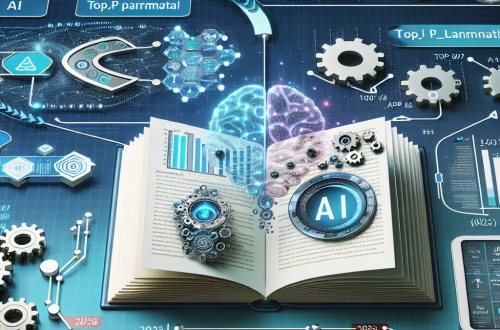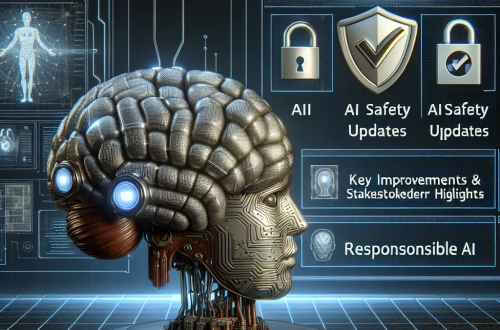Comparison of Top AI Services for Developers
Summary:
This article provides a detailed comparison of the leading AI services available for developers, helping novices understand key differences in features, pricing, and use cases. We examine major platforms like OpenAI, Google Cloud AI, AWS AI Services, and IBM Watson, highlighting their strengths and weaknesses. Whether you’re building chatbots, automating workflows, or integrating machine learning into applications, choosing the right AI service is crucial. This guide simplifies the decision-making process by breaking down technical complexities into actionable insights.
What This Means for You:
- Cost-Effective AI Integration: Understanding the pricing models of different AI services helps you avoid unexpected costs. For example, OpenAI’s pay-per-use model may be cheaper for small projects, while AWS offers volume discounts for enterprise users.
- Optimized Performance: Each AI service excels in specific areas—Google Cloud AI leads in natural language processing, while IBM Watson is strong in enterprise solutions. Matching your project needs with the right platform ensures better performance.
- Future-Proofing Your Projects: AI services are evolving rapidly, with new features and APIs being added frequently. Staying informed about updates ensures your applications remain competitive.
- Future Outlook or Warning: While AI services offer powerful tools, reliance on third-party APIs can introduce risks like vendor lock-in or unexpected pricing changes. Developers should consider open-source alternatives for critical applications.
Comparison of Top AI Services for Developers
Choosing the right AI service can significantly impact the success of your development projects. Below, we compare the top AI platforms based on key factors such as ease of use, pricing, performance, and scalability.
1. OpenAI (GPT-4, DALL·E, Whisper)
Best For: Natural language processing (NLP), chatbots, content generation, and creative AI applications.
Strengths: OpenAI’s GPT-4 is one of the most advanced language models available, offering high-quality text generation, summarization, and translation. The API is developer-friendly with extensive documentation and community support.
Weaknesses: Pricing can escalate quickly for high-volume usage, and fine-tuning models requires additional expertise.
Limitations: Limited control over model behavior, and outputs may require manual review for accuracy.
2. Google Cloud AI (Vertex AI, Dialogflow, Vision AI)
Best For: Large-scale enterprise applications, computer vision, and NLP.
Strengths: Google’s AI services integrate seamlessly with other Google Cloud products, making them ideal for businesses already using GCP. Vertex AI simplifies machine learning workflows, while Dialogflow excels in conversational AI.
Weaknesses: Steeper learning curve for beginners, and costs can be high for small projects.
Limitations: Some services require significant setup and configuration.
3. AWS AI Services (Rekognition, Lex, Polly)
Best For: Scalable AI solutions, voice assistants, and image recognition.
Strengths: AWS offers a wide range of AI tools with pay-as-you-go pricing, making it cost-effective for startups. Services like Rekognition provide robust image and video analysis.
Weaknesses: AWS’s fragmented service structure can be overwhelming, and some APIs lack advanced customization.
Limitations: Latency issues may arise in real-time applications.
4. IBM Watson (Assistant, Discovery, NLP)
Best For: Enterprise-grade AI, healthcare, and regulated industries.
Strengths: Watson is known for its strong NLP capabilities and compliance with industry standards like HIPAA. It offers robust security features, making it ideal for sensitive data.
Weaknesses: Higher costs and slower deployment compared to competitors.
Limitations: Limited pre-trained models compared to OpenAI or Google.
5. Microsoft Azure AI (Cognitive Services, Bot Framework)
Best For: Developers using Microsoft ecosystems and enterprise applications.
Strengths: Azure AI integrates well with Microsoft products like Office 365 and Dynamics. Cognitive Services provide easy-to-use APIs for vision, speech, and language tasks.
Weaknesses: Less flexibility for customization compared to open-source alternatives.
Limitations: Some services require Azure subscriptions, adding complexity for non-Microsoft users.
Key Takeaways
Each AI service has unique advantages depending on your project requirements. OpenAI is ideal for creative applications, Google Cloud AI excels in NLP, AWS is best for scalability, IBM Watson suits regulated industries, and Azure AI integrates smoothly with Microsoft products. Evaluate your needs carefully before committing to a platform.
People Also Ask About:
- Which AI service is best for beginners? OpenAI and Microsoft Azure AI are the most beginner-friendly due to their straightforward APIs and extensive documentation.
- How much do AI services cost? Pricing varies widely—OpenAI charges per token, AWS and Google use pay-as-you-go models, while IBM Watson has enterprise pricing.
- Can I use multiple AI services together? Yes, many developers combine services (e.g., OpenAI for text and AWS Rekognition for images) to leverage the strengths of each.
- Are there free tiers available? Most platforms offer free tiers or trial credits, but these are often limited in functionality.
- What are the risks of using third-party AI services? Risks include vendor lock-in, data privacy concerns, and API deprecation. Always review terms of service and data policies.
Expert Opinion:
Developers should prioritize flexibility and scalability when choosing an AI service. While proprietary APIs offer convenience, open-source models like Hugging Face’s Transformers provide greater control. The AI landscape is rapidly evolving, so staying adaptable is key. Additionally, ethical considerations, such as bias mitigation and data privacy, should not be overlooked when integrating third-party AI tools.
Extra Information:
- OpenAI API Documentation – A comprehensive guide for developers using OpenAI’s models.
- Google Cloud AI Products – Details on Google’s AI services and integration options.
- AWS AI Services – Overview of Amazon’s AI tools and pricing structures.
Related Key Terms:
- Best AI APIs for developers in 2024
- OpenAI vs Google Cloud AI comparison
- Affordable AI services for startups
- Enterprise AI solutions for regulated industries
- How to choose the right AI service for your project
Check out our AI Model Comparison Tool here: AI Model Comparison Tool
*Featured image generated by Dall-E 3





